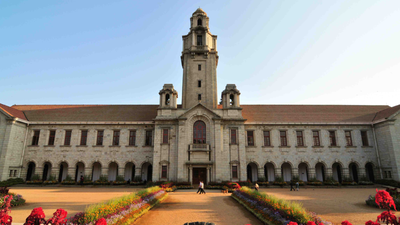ARTICLE AD BOX

India’s obsession with productivity has once again come under the spotlight, this time from within one of its most prestigious academic institutions. According to media speculations, a major outrage has erupted at the Indian Institute of Science (IISc) in Bengaluru after its Department of Electronic Systems Engineering (ESE) rolled out a stringent new attendance and parking policy.The department, in its defence, has described the move as a step towards “transparency, discipline, and accountability.” But inside the campus, students are calling it something else entirely, “oppressive, unrealistic, and damaging to mental health.” The clash between institutional control and academic freedom has now reignited a deeper question: has India begun equating commitment with exhaustion?
Inside the policy that sparked the storm
The new policy, implemented this month, lays down minimum working hours for every category of personnel,i from faculty and staff to MTech and PhD scholars.
According to the department’s circular, permanent and contractual staff must clock 40 working hours per week, excluding lunch breaks.For students, the bar has been raised significantly higher. MTech and first-year PhD scholars are now required to spend at least 50 hours weekly on campus. The most contentious clause, however, concerns senior PhD scholars, who are expected to “match their supervisors’ working hours,” a commitment that often stretches between 70 and 80 hours a week.
Adding to the pressure, those accessing central research facilities such as the National Nanofabrication Centre (NNFC), Micro and Nano Characterisation Facility (MNCF), or IISc Microscopy Facility must record their time separately. Students wishing to work remotely for medical or personal reasons must provide written documentation and secure approval.To the department, it’s a policy designed to standardise work and accountability.
To the students, it feels like a surveillance system that mistakes presence for performance.
Echoes of a broader problem
The controversy at IISc mirrors a much wider cultural shift sweeping across India’s professional and academic landscape, one that glorifies relentless work and undervalues rest. Just days before this uproar, a Bengaluru start-up founder made waves for declaring that young professionals should work “60–80 hours a week” to achieve success.What began as a corporate philosophy has now crept into the very institutions meant to foster intellectual freedom. Research that thrives on curiosity, reflection, and the freedom to explore, risks being reduced to a mechanical process of logging hours.The danger lies not just in overwork but in the erosion of purpose. When academic excellence becomes tied to timesheets, creativity suffers. The pursuit of discovery becomes a performance, and students, once free to think, are now made to prove that they are thinking.
The cost of constant grind
This isn’t just a story about longer working hours; it’s about the silent reshaping of India’s work ethic. The glorification of exhaustion, whether in start-up culture or scientific research, is producing a generation that measures success not in impact but in hours endured.For students at IISc, the fear runs deeper. Beyond the physical fatigue lies the mental toll of constant scrutiny. When every hour must be accounted for, rest feels like rebellion, and curiosity begins to shrink under pressure.
The result is a paradox: A system meant to encourage innovation ends up stifling it.
From laboratories to time clocks
Academia, by design, was never meant to resemble corporate culture. Research thrives in open, self-driven environments where ideas, not attendance, determine progress. IISc’s new policy threatens to blur that line.The symbolic shift is striking. In a campus known for producing groundbreaking scientific work, students now find themselves filling attendance logs instead of lab notebooks.
The laboratory, once a space of freedom risks becoming just another office cubicle with stricter hours and tighter rules.
A mirror to modern India
The outrage at IISc is not an isolated episode. It reflects the broader unease of an entire generation caught in the grip of a relentless hustle culture. From offices to universities, India’s brightest minds are being told that endurance equals excellence, a dangerous illusion that could hollow out the country’s intellectual and creative potential.The question that remainsAccording to media speculations, the IISc administration has stood by its justification of the policy, but student opposition continues to grow. What happens next could set a precedent for how India defines productivity in its academic institutions.The country’s future innovators, scientists, and entrepreneurs are asking a simple, hard-hitting question: Must brilliance come at the cost of burnout?Until that question finds an honest answer, the 80-hour dream will remain just that, a mirage, glittering with ambition but fading fast under the weight of exhaustion.

 5 days ago
9
5 days ago
9









 English (US) ·
English (US) ·